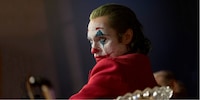
Background information
Joker: is it possible to feel compassion for serial killers?
by Luca Fontana

Joker: Folie à Deux is a strong film in itself; impressive on both a visual and emotional level. That said, it almost seems like a carbon copy of the first Joker movie. The only brave thing about it is the singing.
Let me start off by getting one thing straight. This review contains zero spoilers. I won’t be mentioning anything that hasn’t already been revealed in trailers.
What the world needs now is love, sweet love, as Tom Jones once sang. After all, there are mountains and hillsides enough to climb. Oceans and rivers enough to cross. Love is the only thing there’s just too little of.
Jones himself probably couldn’t have imagined how apt these words would still be half a century later, accompanied by one of the most bittersweet melodies ever. But when Joker: Folie à Deux begins with his song, I’m left with a lump in my throat. The first Joker film made a powerful statement about the lack of love and compassion in the world – and the second continues exactly that.
But that’s precisely where the problem lies.
Arthur Fleck (Joaquin Phoenix) has committed murder. When famous late-night comedian Murray Franklin (Robert DeNiro), who Arthur once described as a pseudo father figure, made fun of him in public, the wannabe clown shot him in the head live on TV.
Since then, Arthur hasn’t just been imprisoned. He’s actually been placed under increased supervision. Guards armed with rifles keep watch over his cell, and follow him everywhere. Even outside, in the pouring rain. Harassment is the order of the day. The remains of the pile of misery Arthur once was has become even more pitiful.
But a ray of hope emerges when Arthur crosses paths with Harleen Quinzel (Lady Gaga), a fellow inmate. Together, they imagine a world where they create great things. Mountains. Hillsides. Music. It’s a mental escape from the depressing reality of the institution. At least, until the public trial against Arthur begins.
Nobody in 2019 would’ve expected that one of Hollywood’s most courageous and disturbing character studies would come from the director and writer of slapstick comedy The Hangover. Todd Phillips, however, was undeterred by this. Joker set new standards and broke records. Until Deadpool & Wolverine, his interpretation of The Joker, loosely based on the DC comics, was actually the most successful R-rated movie of all time.
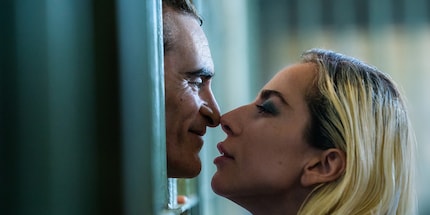
And no wonder. Joker was uncomfortable, but honest. That’s exactly why it became one of the most controversial films made in recent years. Joker dared to pose the provocative question of whether we can – or maybe even should – see the human side of mass murderers. So much so that viewers pretty much couldn’t help putting themselves in the Joker’s shoes. How else would we understand the way society hardens people so much that it creates killers itself?
The critics, however, saw danger in this. Might potential perpetrators of violence watching the film feel validated in their role as victims and use it as justification for violent acts? When Joker shot his former hero in cold blood at the end of the first movie, most of us were probably horrified. But hands up if some tiny part of you didn’t feel like Murray got what he «deserved» in the end.
These elements made Joker fascinating and disturbing at the same time. And Todd Phillips couldn’t have been more in tune with the spirit of the times. Just a few months later, the Covid pandemic put societal cohesion to the test. Insurmountable barriers emerged between people – as hard and implacable as stone. Understanding, empathy and compassion gave way to blame and mistrust, while everyone outside their own four walls became a potential enemy.
«What the world needs now is love, sweet love,» is still echoing in my head.
Given the success and ingenuity of the first film, it’s hardly groundbreaking to say that Joker: Folie à Deux is doomed to disappoint. That’s just reality. Even so, Folie à Deux doesn’t get that much wrong. It does the same thing as its predecessor, only much less boldly. That’s where the real disappointment lies.
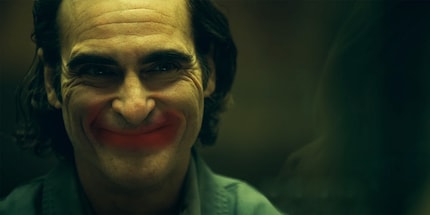
Arthur Fleck is still society’s whipping boy. Life’s still cruel to him. And as soon as a little hope begins to bloom, it’s snatched away again. Despite that reality being thrust under our noses, we’re already aware of it.
What is new, however, is that Folie à Deux is a musical. One that aims to lead us into Arthur Fleck’s inner world again and again. In it, he dances with his lover Harleen «Lee» Quinzel across the neon-lit rooftops of Gotham, performs in nightclubs and hosts TV shows. When you consider this, Lady Gaga’s casting makes sense. In fact, the chemistry between her and Phoenix is definitely one of the movie’s strengths.
However, what may sound like an enticing idea fails when it’s put into practice. «We use music to make us whole. To balance the fractures within ourselves,» says the institution’s choirmaster. The film would’ve worked better if the musical numbers had taken the exact opposite effect. In other words, if they’d fuelled Arthur’s delusions, caused him to slide even deeper into his psychotic episodes and ultimately snap.
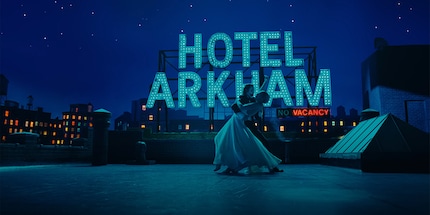
Instead, the musical numbers mostly just repeat what we viewers already know and have just seen. It’s as if we wouldn’t understand what was going on inside Arthur without the songs. This renders them completely obsolete, which, for a musical, is tantamount to a death sentence.
If there’s anywhere Folie à Deux ramps up the tension, it’s in its courtroom scenes. This is where we really get to the film’s central issue: what should society do with people like Arthur Fleck?
While prosecutor Harvey Dent (Harry Lawtey) demands the death penalty, arguing that Arthur should answer for his actions, the defence pleads insanity. They say it wasn’t Arthur Fleck who committed the crimes, but the other fragment of his split personality – the Joker. As a result, they argue, Arthur should be treated, not punished.
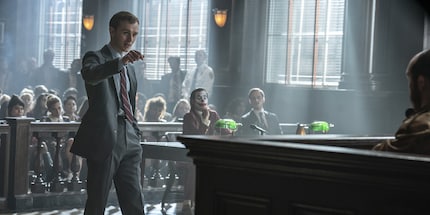
It’s a thrilling dilemma. And one that Todd Phillips answers very definitively. Which is too bad. While Joker left us to figure things out for ourselves, Phillips never really lets us stray into that uncomfortable territory with Folie à Deux. And without spoiling anything, the answer he gives us ends up being as obvious as it is uninspired.
This is particularly evident in the crowd of people gathered outside the courthouse demanding «justice for Arthur Fleck». You see, there’s also a Joker film within Folie à Deux. One that aroused pity and understanding for the character. As a result, Arthur unwittingly became an inspiration for other potential perpetrators of violence who see themselves as victims of the system. Sound familiar?
Phillips makes it clear he doesn’t think much of this, especially through his portrayal of the cult-like courthouse gatherings. Basically, it’s obvious to him that the idealisation of the Joker has got out of hand. Through the words of his movie characters, Phillips actually lets it slip quite openly that even Arthur’s followers aren’t really interested in the plight of the broken man. In a world that’s long since succumbed to sensationalism, the masses ultimately only enjoy the Joker because he’s been stylised as a charismatic martyr. Arthur, on the other hand, is still a nobody.
«That’s what we should be talking about,» the man himself says at one point in the film.
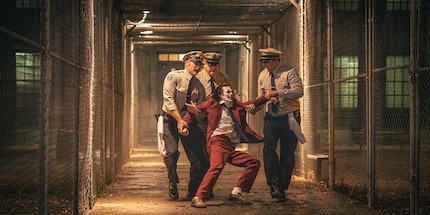
Do I see things the same way? Yes and no. Joker’s strength lay in allowing us viewers to be alone with our ambivalence. It even had us questioning our own morality, letting us draw our own conclusions about what to do with what we’d seen. This is exactly what sparked the discussion about complex issues such as severe mental illness and what we as a society can do to prevent evil.
In the sequel, however, Todd Phillips does the thinking for us, providing definitive answers to questions he’d already asked in the previous film. Perhaps even to prevent polemics which, like last time, tried to portray him as someone who glorifies violence. I get it. But unlike the first Joker, Folie à Deux fails to teach us viewers a cinematic lesson.
There’s no doubt that Joker: Folie à Deux is a moving film. Especially when the chemistry between Phoenix and Gaga comes to the fore. Surprisingly, it’s the musical numbers of all things that fall short. Director Todd Phillips rarely succeeds in seamlessly integrating the songs into the gritty story. Instead, they too often repeat things the audience already knows and has seen.
An even more consequential issue? Folie à Deux offers little in the way of food for thought that we didn’t already get from the original. This raises the question of why this sequel’s necessary at all. In fact, it lacks the courage to leave uncomfortable questions unanswered.
That being said, the movie in itself is by no means bad. The acting, the oppressive setting and a score that gets under your skin are far too good to say that. In the end, maybe the film falters because a better version of it already exists. A standard Folie à Deux will inevitably be measured against. The film hits theatres on 3 October.
Pro
Contra
I write about technology as if it were cinema, and about films as if they were real life. Between bits and blockbusters, I’m after stories that move people, not just generate clicks. And yes – sometimes I listen to film scores louder than I probably should.
Which films, shows, books, games or board games are genuinely great? Recommendations from our personal experience.
Show all